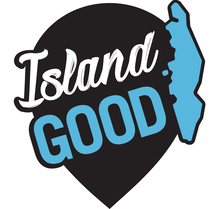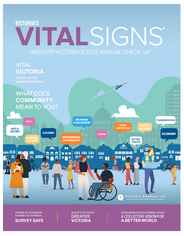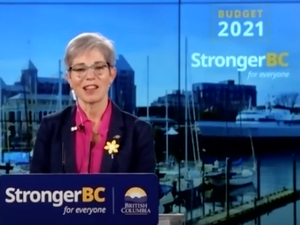|
It's been the hot-button topic for so long, it's easy to forget just how much inflation has forever changed the cost of household budgeting.
An online tool can help track exactly how much individual goods have changed in price. The Average Retail Food Prices Data Visualization Tool is helpful to show the price increase or decrease for 105 typical grocery items. For example, the cost for one kilogram of chicken breast in BC was $18.18 in March compared to $16.71 a year earlier. Meanwhile, a 454 gram block of butter was $6.08 in March — down from $6.45 in the same month in 2023. In BC, the item that saw the largest increase in price over the last year is infant formula, which is up 24% year over year. The City of Victoria is updating its Official Community Plan this year. The province requires all BC municipalities to update their OCP every five years with a vision for the next 20 years. Victoria — facing a changing climate, growing population and a profound shortage of housing — is looking for input from the public and business community to help shape the next plan.
"Decisions on where housing, businesses and parks should go, how we move around the city and ways Victoria can respond to the climate crisis are all determined by the OCP," states the city's website. "If the City was a train, the OCP would be its conductor leading the way." Community engagement will continue until September and plans currently include an open house, a survey, pop-up events in the city and an online information session. Learn more at engage.victoria.ca/ocp. How do we solve homelessness? There's no easy answer as cities across the world and particularly along the west coast of North America are experiencing a surge in people living on the streets. In Greater Victoria, parts of our regional downtown have become almost unrecognizable. A constant state of distress impacts everyone who experiences the scene of people suffering from untreated mental health issues and addiction.
"The Chamber is looking at long-term solutions that could take generations while also calling for immediate action that can make a real difference today," Chamber CEO Bruce Williams said. "We need to work with our community partners, specifically those who are on the frontline. Their experiences are vital to helping shape policies and programs that address the roots of this issue." Partners such as Our Place Society and the Victoria Conservatory of Music, who recently co- authored an essay in the Times Colonist have offered a thoughtful four-point plan that deserves consideration. The essay is worth a read but The Chamber agrees that we need to:
It's been far from a smooth process bringing an end to the strike affecting Canada's Western ports. The "off again on again" strike created a significant disruption to supply lines on the Island and across the country.
The strike has kept $9.9 billion worth of goods from flowing smoothly from the ports to businesses and consumers, according to the Greater Vancouver Board of Trade. "Every day that the strike is going adds to the uncertainty that many businesses are feeling," Chamber CEO Bruce Williams said. "I spoke with a number of chamber members and we are concerned for smaller businesses that don't have large warehouses to store inventory. Many of these businesses rely on efficient shipping to get specialty foods, parts or items based on current demand. It's also a stressful time for businesses that rely on the ports for exports. Hopefully the backlog caused by the strike will clear up as soon as possible." This year, the Buy BC Partnership Program is providing $2 million for marketing activities that increase consumer awareness and drive sales of local food and beverage products.
The program, managed and administered by MNP LLP on behalf of BC's Ministry of Agriculture and Food, has helped generate an estimated $80 million in sales since 2017. More than 800 businesses are registered to use the Buy BC logo on almost 4,000 food and beverage products. The provincial Indigenous Food Systems and Agriculture Partnership Program supports Indigenous governments, communities and businesses with agriculture, food processing and food-systems planning, as well as training and skills development, technological adoption, scaling up productivity and profitability, and climate change adaptation.
Among the projects in our region, the Victoria Native Friendship Centre received $80,000. The funds will be used to work on the Oak Bay property gifted to the centre by the late Marion Cumming. The plan is to remove invasive plants, add native plants, beehives, pollinator plants and increase food security in the community by growing year round. A fire at The Mustard Seed food bank on Queens Avenue has closed the much-needed service and left the charity seeking help to repair the damage.
The blaze occurred in the early morning on March 27, with CHEK News reporting that the Victoria Fire Department was called at 6:21 am. Crews were able to extinguish the flames quickly but smoke damage shut down operations. The Mustard Seed typically serves 3,000 hot meals every month, as well as distributing 1,200 food hampers. The organization said they will let the public know when they reopen by posting on their Facebook page. The end of Flower Count is a good sign that patio season is right around the corner. Last week, the hard work of business and industry associations was rewarded when the provincial government announced it was giving businesses more time to make outdoor seating permanent. The deadline has been extended to Dec. 31, 2024.
During the early days of the pandemic, many restaurants, pubs, bars and breweries found innovative solutions to create safe spaces for customers. These outdoor areas were well received by the public and helped economic activity thrive. To support the efforts of business, the province provided temporary expanded service area (TESA) authorizations to thousands of liquor-licensed businesses. “Many licensees have not applied to make their TESA permanent due to the stress and pressure as a result of the effects of the pandemic and the unprecedented labour shortage," BC Restaurant and Foodservices Association president and CEO Ian Tostenson said. "We would like to thank government for being conscious of this and providing the much-needed extension.” Meanwhile, the CIty of Victoria will have to decide tomorrow, March 16, how it will proceed with its new Patio Regulation Bylaw. The bylaw updates the emergency measures implemented during the pandemic to provide more municipal oversight. City staff have been engaging with businesses and neighbourhood groups to develop its rules before the provincial TESA program was originally supposed to end. Now that an extension has been granted, the City should have more time to ensure its changes are workable for businesses. Yesterday, the 2023 budget was released with a focus on addressing many of the symptoms of unaffordability affecting British Columbians. However, there was a lack of new investment aimed at improving the province’s business climate.
The Chamber is traditionally the first business association to host the finance minister after the unveiling of the province's annual budget and BC Finance Minister Katrine Conroy addressed more than 100 business and community leaders today at the Hotel Grand Pacific. Among the highlights of BC Budget 2023 are $1 billion in new money for mental health and addiction services, new funding to improve food security and the $480 million Future Ready Plan, which will help employees gain the skills needed by employers. The province is forecasting deficits for the next three years but has chosen to increase spending this year. Minister Conroy said global inflation and the lingering effects of the pandemic are contributing to systemic challenges that make life less affordable for British Columbians. In the next 30 days, the $3.6 billion surplus left over from last year needs to be spent and will be used for a number of projects currently in the works. Details of that spending will be made available in the coming weeks. “The Chamber has heard from our members that they need help finding and keeping workers, and they want more done to ensure safe communities for all,” Chamber CEO Bruce Williams said, noting there are also annual increases to the Carbon Tax, which will add to the cost of doing business. “This budget will help by addressing symptoms of unaffordability through the renter’s tax credit, school food programs and a significant increase to healthcare funding. It’s a start but we would have liked to see BC Budget 2023 give a higher profile to the role business plays in improving the quality of life for all British Columbians. Businesses are the ones who make the investments needed to build resilience and create real solutions to affordability.”  Changing times create disruption but also present tremendous opportunities for forward-thinking organizations. The tide of high inflation has highlighted the need to create more resilient local production and supply networks. Groceries are a good example of the need for investment in suppliers located closer to home. The provincial government's Buy BC program and the Vancouver Island Economic Alliance's Island Good shows the value of supporting innovation led by business. On Monday, BuyBC hosted an event in Victoria called Every Chef Needs a Farmer, Every Farmer Needs a Chef. Among the exhibitors was Finest at Sea Ocean Products. "There is clear evidence of the value that bring local brings to a community, but it's not always top of mind when we're at the grocery story purchasing produce for our families," Chamber CEO Bruce Williams said. "The Buy BC and Island Good programs makes it easier to remember the value in buying local, both in terms of freshness and health as well as in ensuring local farmers feel they are supported so they can take the risks needed to build their business."  Housing remains a drag on the vitality of our region, though overall quality of life in Greater Victoria has improved. According to the 2022 Vital Signs Report, released this week, Greater Victoria's grade has moved up from a B grade last year to a B+ this year. Housing earned an F grade this year, a significant drop from a D+ last year. "Vital Signs is a great check up on our region's economy, and The Chamber was happy to contribute as a community partner this year," Chamber CEO Bruce Williams said. "The grades are a good way to illustrate concepts that contribute to our overall quality of life." It's the 19th edition of the annual report, which uses surveys as well as stories and graphics to provide snapshots of the past year. This year's theme asked What Does Community Mean To You? Respondents rated the natural environment and climate as the best things about Greater Victoria. The aforementioned Housing crisis and cost of living were the two most important issues, according to the survey. The report looks at 12 areas, with grades ranging from a B-plus for Learning and Sports and Recreation, to an F for Housing and a C- for Health and Wellness. The latest numbers show inflation has cooled faster than expected. The August Consumer Price Index was up 7% over last year — less than the 7.3% that had been forecast. Core inflation was also lower than expected.
The drop in inflation comes after the Bank of Canada raised interest rates. However, it will take more than numbers to stem inflation and get Canada's economy back on track, said the bank's Deputy Governor Paul Beaudry. "Some have suggested that policy-makers need to engineer a substantial slowdown — or even a recession — to get inflation back under control," Beaudry said in a speech on Tuesday. "But the best strategy for responding to high inflation needs to consider how people form their inflation expectations. If people understand and believe that the central bank will eventually bring inflation back to target, their expectations will remain 'anchored.'” Businesses and employers can help by moderating increases to prices or wages, with the understanding that inflationary pressures are temporary. Not an easy task for organizations facing increasing costs and still recovering from pandemic challenges. As a globally connected nation, Canada depends on reliable international supply chains to make sure businesses have the goods needed for their customers. The pandemic and last year's series of climate emergencies provided tough lessons in the importance of building resiliency in our supply chains. To better prepare for future shocks, the federal government created the National Supply Chain Task Force.
"The Task Force is to report to government within 100 days, which is fast approaching," states a news release from the Canadian Chamber of Commerce. "As the Task Force finalizes its interim report, the business community is looking for a partner to address the preventable items hindering our transportation systems." The chamber network is calling on the federal government to prioritize infrastructure and economic growth. In Greater Victoria, we are part of the Western Gateway for goods entering Canada and the Greater Victoria Chamber continues to call for investment in infrastructure on the Island. A surge in the supply of goods from overseas over the next few months could see retailers offering discounts if they suddenly need to balance inventory with demand.
North American ports have faced major disruptions over the past few years, with BC's main port in Vancouver ranked among the most inefficient in the world in 2021. The only ports that fared worse in the Container Port Performance Index were on the US West Coast. The uncertainty caused by the pandemic and volatile trade conditions has made it more difficult to manage the arrival of goods from overseas. The situation is improving but it will take time for supply chain networks to return to previous efficiencies. This might be good news for consumers and help reduce inflationary pressure but will mean many businesses need to remain nimble and adjust their overseas purchases. It's also a reminder of the importance of supporting local producers who are less affected by shipping disruptions. As well, the proposal to improve the deep sea port facility at Port Alberni represents a tremendous opportunity for the Island and the entire province. Thousands of people in need will once again get to have a full Christmas dinner, thanks to Dodd's Furniture & Mattress. The Vancouver Island institution is hosting three meals in communities with a Dodd's location.
In Greater Victoria, Christmas dinner will be Friday, Dec. 17, from 4:30 to 6:30 pm at Our Place Society on Pandora Street. Dinners are also planned for Nanaimo on Dec. 18, and Campbell River on Dec. 22. Gordy Dodd is well known across the province for his television commercials as well as his philanthropic work helping others. Dodd earned a Lifetime Achievement award at the Chamber's 2019 Business Awards. Dodd, as well as all Lifetime Achievement winners, will be celebrated on Feb. 3 at The Chamber's first-ever Business Hall of Fame Gala. As we head into the heart of the holiday season, the Greater Victoria Chamber of Commerce has put together a wish list for a few of the things we want in 2022:
"Good business builds great community, and we look forward to helping our members connect and grow in 2022," Chamber CEO Bruce Williams says. "We'll continue working on our advocacy efforts to ensure business can get the investments they need to continue leading the way on sustainability, inclusion and resilience." Let us know what your wish is for the business community in 2022, and how we can help you achieve success in the year ahead. Email [email protected] Financial support is available for First Nations and Indigenous entrepreneurs looking to produce or process food, or other associated activities. The BC Indigenous Agriculture Development Program provides up to $8,000 for specialized planning and coaching services to help develop food and agricultural businesses.
Food security is a priority for our region, and tapping into Indigenous knowledge about sustainable production on their traditional territories can only help as we continue to face challenges due to climate events. The program is first-come first-serve and will be available until all of the ascribed funding is allocated.  On April 27, BC's Minister of Finance Selina Robinson provided Chamber members with an overview of the recently unveiled budget and she answered questions about the state of the province's economy. If you missed seeing it live, you can still watch a recording of the event to hear what Minister Robinson had to say about government plans to help business and families, and implement new initiatives to ensure our economic recovery continues. Request Access to the Video An investment in seed production will help increase food security across BC, including on Vancouver Island. The province announced Monday that it is looking into adding infrastructure to increase local production of vegetable, grain and plant seeds.
“All seed producers in our area have been struggling to increase our production in order to keep up with increased demand," Saanich Organics' Theresa Heinekey said in the government's news release. “Many seed producers are smaller, family-run farms that cannot afford their own seed cleaning and packaging equipment, but, by expanding the role of our food hubs to include those services, we can help solve that problem,” Minister of Agriculture, Food and Fisheries Lana Popham said. |
Categories
All
|
Copyright © 2021 Greater Victoria Chamber of Commerce. All rights reserved.
#100 – 852 Fort St., Victoria, BC V8W 1H8, Canada | Phone: (250) 383-7191
[email protected] | Site Map
#100 – 852 Fort St., Victoria, BC V8W 1H8, Canada | Phone: (250) 383-7191
[email protected] | Site Map
Notice a typo or broken link? Please let us know so we can fix it ASAP. Email [email protected]

